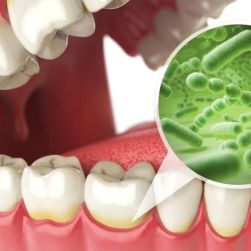Systemic Effects of Gum Disease: Understanding the Health Connection
Gum disease, a prevalent oral health issue, is often overlooked as merely a dental concern. However, research has increasingly illuminated the connection between oral health and overall systemic health. At Dentistry Toothtruth, we strive to bridge this awareness gap among our readers, highlighting the profound impact gum disease can have beyond our mouths.
Periodontal disease, commonly known as gum disease, is characterized by inflammation and infection of the gums. It's not merely a matter of bleeding or swollen gums; it's a significant health issue that can resonate throughout the body.
Beyond its impact on oral health, gum disease is linked to serious systemic conditions. It affects both the young and old, potentially exacerbating other health problems. Thus, understanding the systemic effects of gum disease is crucial for promoting both oral and general health.
The Basics: Understanding Gum Disease
Gum disease begins with the accumulation of plaque, a sticky film of bacteria. Plaque, when not adequately removed, hardens into tartar, leading to inflammation called gingivitis—the earliest stage of gum disease.
If left unaddressed, gingivitis can progress to periodontitis: gums recede, supporting bones degrade, and, ultimately, teeth might be lost. Periodontitis not only threatens oral health but also acts as a gateway to serious systemic health issues.
According to the Centers for Disease Control and Prevention (CDC), almost half of American adults suffer from some form of periodontal disease, underscoring its widespread prevalence.
Link Between Gum Disease and Cardiovascular Health
Research has drawn alarming correlations between gum disease and cardiovascular conditions. Inflammation caused by periodontal disease may contribute to the development of heart disease.
The mechanism is often linked to bacteria entering the bloodstream through damaged gum tissue, potentially leading to inflammation and atherosclerosis. A study published by the American Heart Association found that periodontal disease is associated with a higher risk of heart disease.
This connection highlights the importance of oral health practices as a component of cardiovascular disease prevention strategies.
Diabetes and Gum Disease: A Bidirectional Relationship
For those living with diabetes, gum disease presents a chronic challenge and vice versa. Periodontal disease, by nature inflammatory, can exacerbate diabetic symptoms, making blood sugar levels harder to control.
Conversely, high blood sugar provides an ideal environment for bacteria, further promoting gum disease progression. The American Diabetes Association emphasizes the need for diabetics to maintain stringent oral hygiene and regular dental check-ups.
This bidirectional relationship offers yet another layer of complexity, suggesting that managing one condition can potentially lead to improvements in the other.
Impact on Respiratory Health
Gum disease can also have significant implications for respiratory health. Studies suggest bacteria from the oral cavity could be inhaled into the lungs, potentially causing or worsening respiratory illnesses like pneumonia or chronic obstructive pulmonary disease (COPD).
This is particularly concerning for hospital patients, individuals with weakened immune systems, and the elderly, who are more susceptible to these conditions. Maintaining good oral hygiene can therefore be seen as an integral part of preventing respiratory infections.
Pregnancy Complications Associated with Gum Disease
Pregnant women are not immune to the systemic effects of gum disease. Inflammation and bacteria can affect pregnancy outcomes, potentially leading to premature birth or low birth weight.
A study by the Journal of the American Dental Association emphasizes the importance of routine dental care during pregnancy, showcasing how improved maternal oral health could positively influence pregnancy outcomes.
With hormonal changes increasing the risk of gingivitis, addressing oral health needs during pregnancy becomes imperative.
Preventive Measures and Treatment Options
Prevention is the cornerstone of reducing gum disease risk and its systemic effects. Simple, consistent oral hygiene practices can significantly curb periodontal diseases and their influence on overall health.
For those already experiencing gum disease, various treatment options are available ranging from nonsurgical interventions like scaling, root planing, to surgical methods to restore supportive tissues.
Conclusion: Bridging Oral Health and Overall Health
The systemic effects of gum disease underscore the inseparable link between oral and systemic health. Recognizing these connections can lead to better healthcare outcomes and enhanced quality of life.
At Dentistry Toothtruth, we advocate for increased awareness and proactive management of gum disease through informed dental care practices. By prioritizing oral hygiene, individuals can make impactful strides in safeguarding their health.
We encourage regular dental visits and stringent oral hygiene as part of an integrated approach to health. It's more than a dental policy; it’s a commitment to overall well-being.






